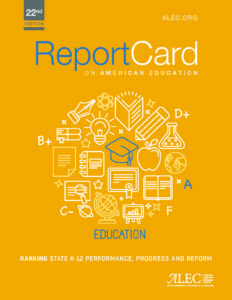
Why are cybercharter schools treated as a threat, not savior, amid shutdowns: Kevin Mooney
Pennsylvania parents who view online education as a viable alternative to conventional district schools during this time of crisis have greatly unsettled their state’s education establishment.
That much was made apparent in March when the Pennsylvania Association of School Administrators pressured government officials to impose a moratorium on any new enrollments into publicly funded cybercharter schools while traditional public schools are unable to teach students in person.
After initially announcing that all of Pennsylvania’s K-12 schools would be closed for 10 business days in response to COVID-19, Gov. Tom Wolf said last week during a virtual press conference that schools will be closed indefinitely.
But cybercharter schools that make smart use of internet technology to deliver education services have been able to make an almost seamless transition during this time of crisis. For this reason, they have become attractive to parents who may not have previously considered them as an option. The advantages are obvious.
Unlike their “brick and mortar” counterparts, cybercharter schools are not constrained by a physical location. Moreover, the state’s education department has issued “Continuity of Education” guidelines that encourage “all schools [to] provide some type of continuity of education for all students in the most appropriate and accessible ways possible, while also honoring the governor’s guidance to aggressive social distancing of at least six feet between individuals.”
Cybercharter schools certainly fit the bill.
Regina Mallon has been a special education instructor with the Agora Cyber Charter School for the past nine years, where she has seen “many positives” accrue to a wide range of students.
Special needs students who have “developed anxiety issues, behavior issues, or have been bullied in their district schools” often become “much more relaxed when they come to Agora,” she told me. “On the other end of the spectrum, I come into contact with students who are advanced learners, and they are getting an opportunity to move along at their own pace. Agora is part of the National Honor Society, even in the elementary school. We have advanced learning courses.”
Agora is one of 15 public cybercharter schools in Pennsylvania that provide individualized education to more than 34,000 students in 498 of the state’s 500 school districts, according to the Pennsylvania Coalition of Public Charter Schools. Although Wolf has signed off on new legislation pushed by teachers’ unions and school district administrators that precludes charter schools from receiving new funding for students enrolled after March 13, 2020, the cybercharter community will continue to accommodate “any new students to the best of their ability based on their limited financial resources,” Ana Meyers, the coalition’s executive director, said in an email.
“The position that many of Pennsylvania’s cyber charter schools are taking when it comes to enrollment is that they are not actively advertising for new student enrollment,” Meyers said. “That being said, the cyber charter community feels it is their duty, as educators, to serve the students who come to them.”
Deborah Lavacca, who has been a first- and second-grade teacher with Agora for the past 11 years, is familiar with a number of student success stories in her school. But she advises parents and guardians who are new to online learning to be prepared for its unique, distinct challenges.
“You have to be honest in saying this model isn’t for everyone,” she said. “The students need to have someone at home willing to commit and to make sure the student is doing the work they need to do. You need to have support at home. But I’ve heard so many stories from students about how lost they were in brick-and-mortar schools but then had so much growth here because they had one-on-one attention.”
The Commonwealth Foundation, a free market think tank based in Harrisburg, Pennsylvania, that favors school choice, has published a detailed description of the enrollment procedure for cybercharter schools. In response to critics who have raised questions about the costs of charter schools in general, and cybercharter schools in particular, the foundation highlights some of the key factors that figure into how these schools are funded. Cyberschools receive 27% less funding per student than district schools, which keep the leftover money to cover fixed costs, such as facility maintenance, even though they no longer educate the student. Moreover, charters only receive funding when students enroll.
Marc LeBlond, a senior policy analyst with the foundation, has expressed frustration with “powerful interest groups” such as the administrators’ association and the teachers’ unions, which have lost sight of the fact the public money in question does not belong to them or the school districts.
“By denying students their education tax dollars, these powerful interest groups are cutting children off from what may be their only educational option during the shutdown,” he said. “These efforts would effectively leave hundreds of thousands of the poorest kids without a way to learn.” LeBlond continued:
“Any child should be able to take advantage of online learning, whether via another district or charter school. State elected officials should be encouraging schools to adapt, grow, and learn, not preventing choices that will ensure students can continue to learn and teachers can continue to teach.”
Meanwhile, cyberschools have been lending assistance to brick-and-mortar schools.
“We are very proud of our cybercharter schools for their efforts to work collaboratively with the Department of Education and brick-and-mortar schools to ensure that all students continue to learn during this time,” Meyers said.
Kevin Mooney is an investigative reporter in Washington, D.C., who writes for several national publications. This column originally appeared in the Washington Examiner.



